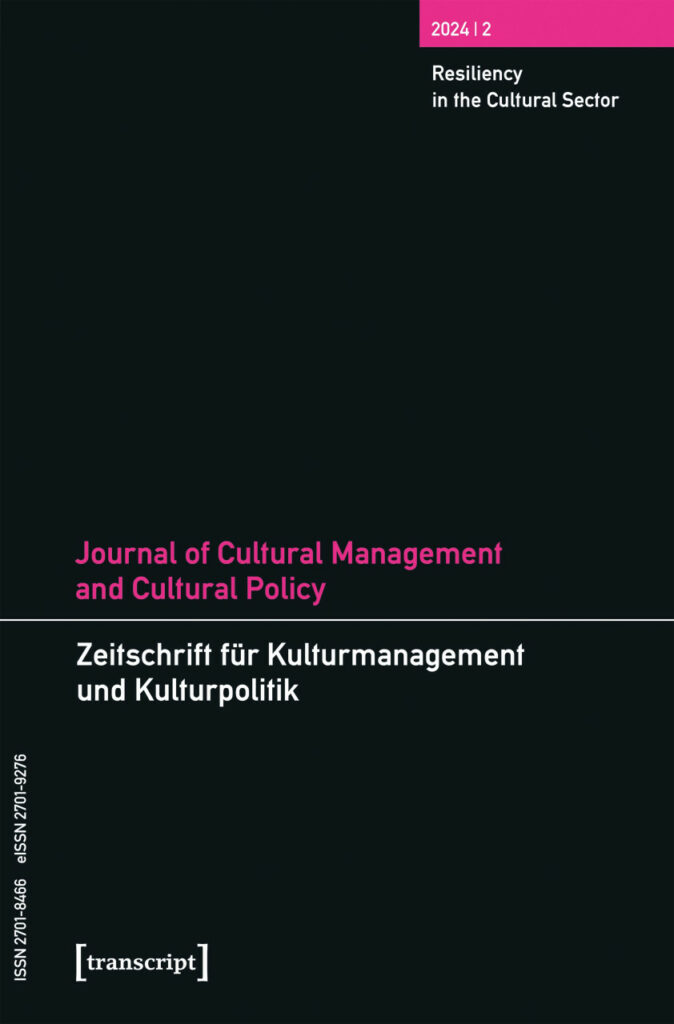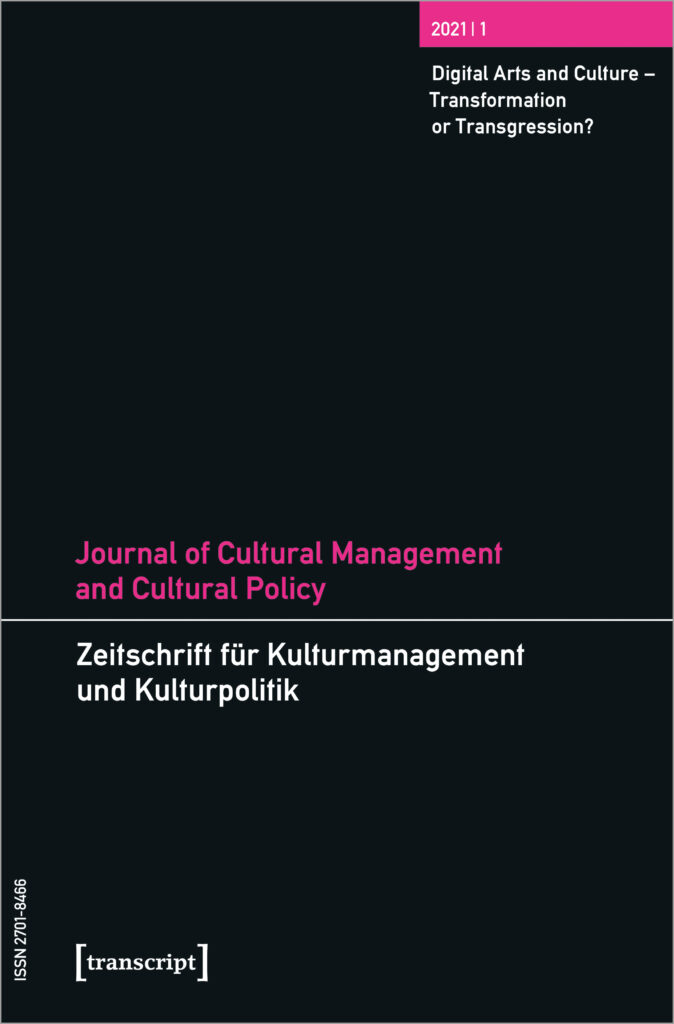Essay
On Digital Artworks and Their Distribution and Preservation Infrastructures
Abstract
Digitalization offers new possibilities for cultural institutions but also challenges existing models. Looking at art institutions and their role as distributors and preservers of culture, this essay uses infrastructure theory and four case studies to discuss challenges that analog institutions face when they are dealing with digital art. The issues identified relate to resources, technical and financial, and knowledge about technological needs. The study also indicates that we hold on to old infrastructures and habits when it comes to preservation and distribution, but also when it comes to what an institution is and what it can be. Changing these habits takes time since they are often embedded in other systems. This suggests that the challenges institutions face in the cases of digital art are part of a larger infrastructural problem, which includes systems for funding, distribution of knowledge, educational programs, and habits.
Keywords
2024 (2)
Resiliency in the Cultural Sector

2021 (1)
Digital Arts and Culture: Transformation or Transgression?

Related Articles
Yearbook for Culture Management 2012
Research Article
Journal of Cultural Management and Cultural Policy
Research Article
Digitale Transformation und deren Auswirkungen
Journal of Cultural Management 2018 (2)
Research Article
Yearbook for Culture Management
Essay
Journal of Cultural Management and Cultural Policy
Research Article
Journal of Cultural Management and Cultural Policy
Research Article
© 2026, Journal of Cultural Management and Cultural Policy
Keywords
- Aesthetics
- Higher Education
- Cultural Diplomacy and Foreign Cultural Policy
- Occupation
- Career and Professional Role
- Audience Development
- Audience Studies and Visitor Studies
- Visitor Motivations
- Business
- Covid Pandemic
- Democracy
- Digitalization
- Diversity
- Third Sector
- Empirical Aesthetics
- Development
- Ethics
- Evaluation
- Field Theory
- Festival
- Film
- Federalism
- Community Arts
- Societal Change
- Ideology
- Staging
- Career
- Communication
- Concert
- Creative Industries
- Creativity
- Crisis
- Culture
- arts organizations, cultural organizations
- Cultural Participation
- Cultural Change
- Fincancing The Arts
- Cultural Promotion Law
- Cultural History
- Cultural Management
- Cultural Economy
- Cultural Organizations
- Art Education
- Cultural Policy
- Cultural Production
- Cultural Sociology
- Art Education
- Cultural Understanding
- Arts Administration
- Cultural Industry
- Cultural Sciences
- Art
- Art Field
- Arts Research
- Artists
- Artistic Research
- Artistic Reputation
- Arts Management
- Arts Organizations
- Art education
- Arts Marketing
- Arts Administration
- Curating
- Leadership
- Literature
- Advocacy
- Management
- Marketing
- Market
- Media
- Methods Development
- Mexico
- Monumentalizing
- Museum
- Music
- Non-Visitor Studies
- Opera
- Orchestra
- Organization
- Political Expression
- Post-truth Politics
- Professional Role
- Audience
- Audience Development
- Law
- Government
- Role
- Socially Engaged Art
- Social Cohesion
- Social Change
- Social Cohesion
- Non-visitor Socio-demographics
- Socioculture
- State
- Symbolic capital
- Dance
- Participatory Justice
- Theatre
- Theatre Governance
- Theory Development
- Tourism
- Transformation
- Survey
- Entrepreneurship
- Urbanism
- Civil Society


